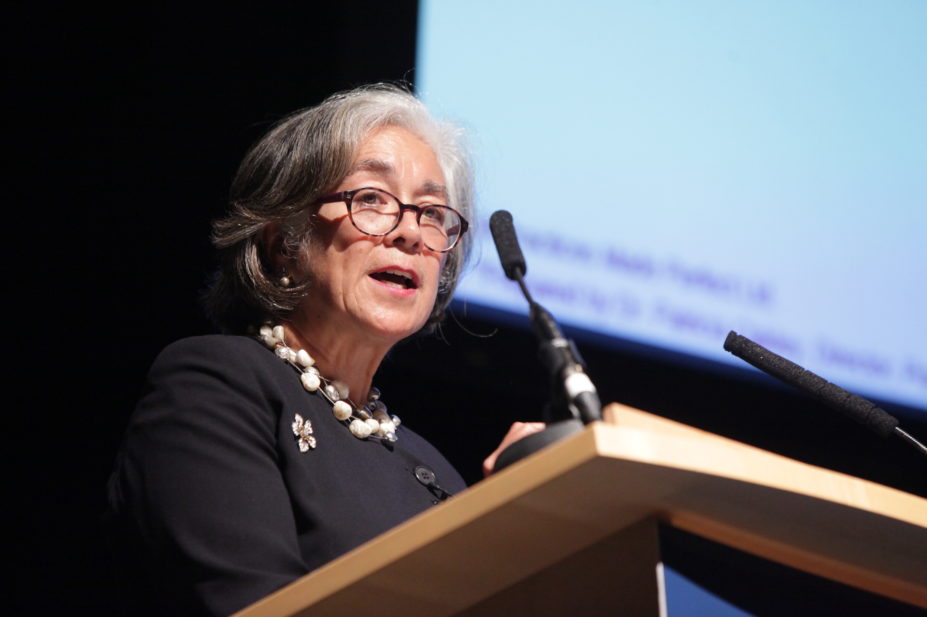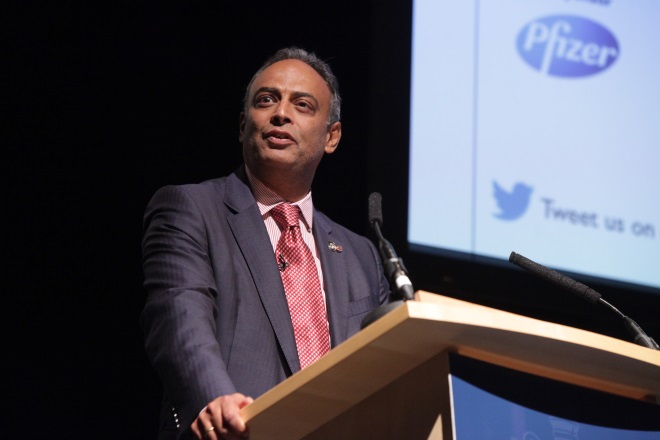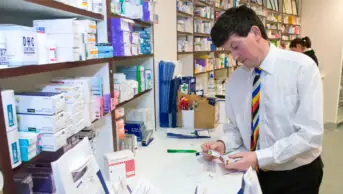
Nadia Attura
The pharmacy profession will need to adapt its clinical practice within a changing NHS over the coming years as the health service adjusts to meet demand, attendees at the Royal Pharmaceutical Society’s (RPS) annual conference heard.
Opening the event in Birmingham on 13 September 2015, speakers described the many opportunities that are being presented to the profession as the NHS in England adapts to new models of care, as pursued under the ‘Five year forward view’ agenda.
In the keynote address, Pat Oakley, teaching and research fellow in public policy and management at King’s College London, said the advent of new “local integrated care organisations” designed to meet the healthcare needs of an ageing population presented new challenges for the profession.
In a speech about the future direction of the NHS and the potential role of pharmacists, she said the UK is making investments in developing personalised and genomic medicines research, genetics and predictive analytics, which will have an impact on the way healthcare is delivered in the future.
The NHS is also facing large demographic changes that require “a different sort of service … and this will not come easily”, she said.
Oakley said pharmacy had to determine its role within the growing middle ground for care between the home and the hospital. For commissioners and policymakers this is an increasingly important domain in which to develop care services as the NHS adapts to managing long-term conditions.
“This is the place of practice development and innovation — this is the place where pharmacy must have a very strong presence,” she said. “The issue for the profession is, is it the domain of community pharmacists or of hospital pharmacists? I’d argue, it doesn’t matter, as long as we get a decent service.”
This middle ground will see the expansion of “local integrated care organisations” — new entities offering a range of outpatient clinics, diagnostics and mental health services in the community from different providers.
These services will aim to improve quality of life for the elderly population, people with long-term conditions and patients undergoing palliative care, as well as improve health prevention programmes, out-of-hours and rapid response services, and hospital discharge into the community.
“It’s not community and it’s not hospital, it’s something in between and that is the new model that we’ve got to start to think about,” said Oakley. “Where does the pharmacy service go? What is its specification, and what is the expectation that they’ll deliver, and is it pharmacists that will do it?”
Goals for medicines optimisation within the NHS ‘Five year forward view’ over the next few years include reducing variation in use of medicines, personalisation of medicines and self-managed care.
Changes would require a “different kind of service for pharmacists to provide to support these ‘places in the middle’”.
Oakley suggested that vital questions include who will take charge of stratifying the most vulnerable patients, and how can the health service improve the organisation of repeat prescriptions and supply, better manage medicines in care homes and improve prescribing.
For clinical practice development over the next five years, she said an in-depth knowledge of the elderly population — including their needs around mental health and end-of-life support — will become increasingly important for pharmacists, as will working in clinical teams in nursing homes, GP practices and community services, among others.
Some pharmacists will also need to study and train in the new fields of predictive analytics and personalised medicine as this becomes more commonly used in the NHS, she added.

Source: Nadia Attura
RPS president Ash Soni says that while developing clinical roles for pharmacists is important, the pharmacy network and dispensing function must be retained
In the opening address, RPS president Ash Soni reflected on burgeoning pharmacist-led services and new roles across the health service — from pharmacists working in accident and emergency departments and the expansion of urgent repeat medication services in community pharmacy, to pharmacists being placed within NHS 111 call centres. He also mentioned the joint RPS and Royal College of General Practitioners campaign for pharmacists to work more closely with GPs, including new roles for pharmacists in GP surgeries.
However, Soni said that while the clinical roles for pharmacists were developing rapidly in the community setting, the pharmacy network and its dispensing function — delivering over a billion items a year — was “an incredible asset” that the nation must also retain and strengthen.
“Any change in the way the network operates must retain that footfall and efficiency in any planning,” he said.
Soni added that the RPS would continue to push for the delivery of legislation to remove the threat of prosecution for dispensing errors, and that the Society would continue to support pharmacists “to work at the top of their licence”.
“This is a journey that has no end, as with our own personal learning,” he said. “Change is inevitable; accept that continuous change, and improvement, or risk becoming irrelevant. That is why the RPS, working with you and I, the members, will continue to build a better future for our profession.”


